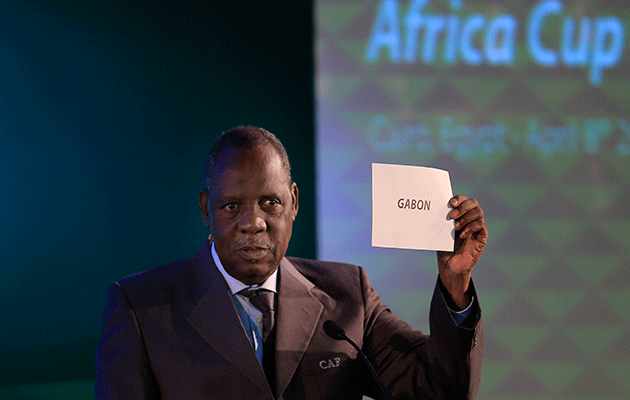Issa Hayatou’s command of African football has never come under so much overt question and doubt.
The 70-year-old stands for re-election at CAF Congress in Addis Ababa, Ethiopia, tomorrow but he must face the unusual vista of an opponent who has managed to cut a path through the barbed wire statutes with which the veteran Cameroonian has protected himself over his 29 years in charge.
Hayatou is one of the last representatives of the derided and disgraced old guard who shored up a corrupt culture within the upper echelons of world federation FIFA.
He has not been implicated in the criminal investigations being run by the authorities in both the United States and Switzerland. However he was rapped over the knuckles by the International Olympic Committee for accepting a disputed cash donation from ISL, FIFA’s bankrupt former marketing partner.
Hayatou also did all he could to prevent the election of Gianni Infantino in February last year as FIFA president in succession to banned Sepp Blatter.
Hayatou’s political antennae let him down when he ordered CAF to back the wrong horse in Asian president, Sheikh Salman bin Ebrahim Al Khalifa.
He paid for it not only in being removed from the presidency of the powerful finance committee but in being kicked off the panel altogether.
That ‘dismissal’ also cost him his place on the FIFA remuneration committee which had played such a dubious role previously in fixing excessive salaries and bonuses for the president and senior officers.
Infantino has denied involving himself in any of the recent elections in the regional conferations. However his attitude to Hayatou appeared obvious from the committee-room reorganisation. Infantino might wish only, perhaps, that Hayatou was facing an opponent from a more high-profile FA than Ahmad Ahmad of Madagascar.
At least Ahmad has been able to lobby for, and build support from within the executive committee – as the election rules demand – and has drawn support from beyond the increasingly disaffected south of Africa.
The Nigerian federation has defied its own government and come out in public support of Ahmad while Hayatou’s most famous fellow countryman, four-times African Footballere of the Year Samuel Eto’o, has also said it is time for a change at the top.
Hayatou has even had to try to fight off court complaint raised in CAF’s own Egyptian back yard – its HQ is in Cairo – concerning the monopolistic deal to grant Lagardère an extension from 2017 to 2028 in its media marketing rights without allegedly undergoing a tender process.
CAF has defended its Lagardère deal by saying “represented an enormous increase in the revenues guaranteed to CAF for its marketing and media rights, which secures significant and guaranteed funds for the benefit of African football over the next 12 years.”
Ahmad has grown ever more confident with so many critics of Hayatou losing their inhibitions about going public with criticism.
Philip Chiyangwa, the Zimbabwean president of regional body COSAFA president who is Ahmad’s campaign manager, said: “We are set for an upset bigger than anything that you have ever seen.
“It’s a movement like nothing that you have ever seen in the game in Africa and there is no stopping the train now because we have passed the point where we could have been stopped and we were gathering momentum with every stop.
“When we told the world that we had 35 votes already secured, people looked at us as if we were joking but I can tell you, loud and clear, that we could even get far more than that because a lot of brave men are now coming out and preaching our gospel.”
Other elections will also be held among the 53 presidents of CAF’s federations (not a full 54 since Eritrea’s Tesfaye Gebreyesus is barred from entering Ethiopia). Congress has to approve new members on the exco and representatives on the expanded FIFA Council.
These elections have become ensnared in their own confusion after the withdrawal from FIFA ballot of Zambia’s Kalusha Bwalya and the rejection of other candidates after eligibility checks.






